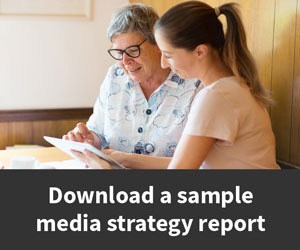With the youngest baby boomers reaching the half century milestone this year, Research Now has carried out a study to gain insight into this generation of consumers. The study of 1,200 respondents aged 50 – 65+ years old from the UK, looked at how members of the baby boomer generation feel about themselves, aspects of their lifestyle, attitudes and behaviours towards technology, and perceptions of brands and advertising.
Key Findings:
- 59% of baby boomers feel younger than they are
- Most are not yet empty-nesters – 37% have children living at home with them
- 39% of baby boomers think there is a lack of representation of people their age in advertising, and only 26% believe they are represented sufficiently
- More than one in 10 baby boomers (12%) say they are among the first to try a new technology product
- The majority (59%) say they are in the middle when it comes to trying a new product
- 78% of baby boomers agree they are sometimes willing to pay more for better quality goods
- Mike Murray, head of project consultancy at Research Now, said: “Our research finds that baby boomers feel like they are being ignored, but don’t want to be targeted in a patronising way. They feel younger than their years, and marketers will do well to acknowledge this when investing in marketing to them – which they should as they represent one of the wealthiest segments of the market.”
The brands and products which were named most frequently as doing well at representing the baby boomer generation in advertising are:
- SAGA
- 50+ life insurance
- M&S
- Olay
- Dove
- Anti-ageing cream
- L’Oreal
- Nivea
- Multivitamins
Despite being the second most named product, only 8% of baby boomers say they have 50+ life insurance, though 35% say they have life insurance.
Murray said: “It is also important to note which brands and products were hardly mentioned, such as fitness brands (despite 69% of baby boomers exercising at least weekly), technology brands (despite high technology consumption), automobiles (despite that for 72% of baby boomers, driving their own car is their primary transportation) and food brands (M&S likely to be mentioned in reference to ‘Leading Ladies’ clothing campaign).”
They feel misrepresented in advertising
The majority (39%) of baby boomers think there is a lack of representation of people their age in advertising; and only 26% believe they are represented sufficiently. Younger baby boomers (50-59 year-olds) are more likely than older baby boomers to think their generation is represented, but could be included more in advertising. Older baby boomers (60+) are more likely to think there is a complete lack of representation of people their age.
This shows that marketers are missing the opportunity to appeal to this demographic, by excluding them from advertising, Research Now claims.
| Age | |||||
| Do you feel that people of your age are represented sufficiently in advertising such as TV adverts, posters and billboards? | Total | 50-54 | 55-59 | 60-64 | 65+ |
| Yes – I think they are represented sufficiently | 26% | 27% | 26% | 26% | 27% |
| Yes – I think they are represented but could be included more in advertising | 29% | 32% | 32% | 26% | 28% |
| No – I think there is a lack of representation of people my age | 39% | 36% | 38% | 40% | 42% |
| No – I do not think people of my age are represented at all | 5% | 5% | 4% | 8% | 4% |
Nearly one quarter (24%) of baby boomers feel the representation of 50-70 year-olds is appropriate, and one in five (20%) feel it is fair. However, 17% of baby boomers feel stereotyped by the presentation of 50-70 year-olds in advertising, 13% of baby boomers say they are made to feel old by it, and 11% feel the representation is inaccurate.
Baby boomers feel younger than their years
On average, 59% of baby boomers feel younger than they are. Twenty three per cent feel five years younger, 27% feel 10 years younger and 9% feel more than 20 years younger. The older you are, the younger you feel; 67% of those over 65 feel younger than they are.
Many are not empty-nesters. On average, 37% of baby boomers have children living at home with them. Older generations are less likely to have a child living at home; 68% of 50-54 year-olds, 45% of 55-59 year-olds, 23% of 60-64 year-olds, and 15% of those 65 and over have children living at home. These children are most likely to be 20-24 years old (37%), 16-19 years old (24%) or 25-29 years old (21%). 19% are over the age of 30.
They consume technology
| Age | |||||
| Which of the following devices do you use regularly? | Total | 50-54 | 55-59 | 60-64 | 65+ |
| Mobile phone | 51% | 45% | 52% | 51% | 56% |
| Smartphone e.g. iPhone, Samsung Galaxy, Nokia Lumia | 48% | 56% | 48% | 46% | 41% |
| Blackberry | 6% | 8% | 5% | 3% | 5% |
| Laptop computer | 69% | 75% | 72% | 65% | 62% |
| Kindle | 30% | 28% | 30% | 33% | 31% |
| Desktop computer | 54% | 49% | 55% | 55% | 57% |
| iPad | 26% | 29% | 20% | 28% | 26% |
| Other Tablet | 20% | 18% | 17% | 23% | 23% |
| Games console | 9% | 11% | 10% | 6% | 8% |
| Internet connected TV | 19% | 21% | 16% | 20% | 17% |
When researchers combine smartphones with the Blackberry, they found a net usage of 54% within the baby boomer age group.
More than one in 10 baby boomers (12%) say they are among the first to try a new technology product, though the majority say they are in the middle when it comes to trying a new product (59%).
The study found that 44% of baby boomers find out about new technology through their children, which might suggest marketing technology to baby boomers is not important. However, most (45%) find out about new products through the media, and 28% find out through their peers or partner. This shows that there is a huge potential for technology brands to try to appeal specifically to baby boomers, said Research Now.
This article originally appeared in the Retail Times UK Oct 1, 2014.


